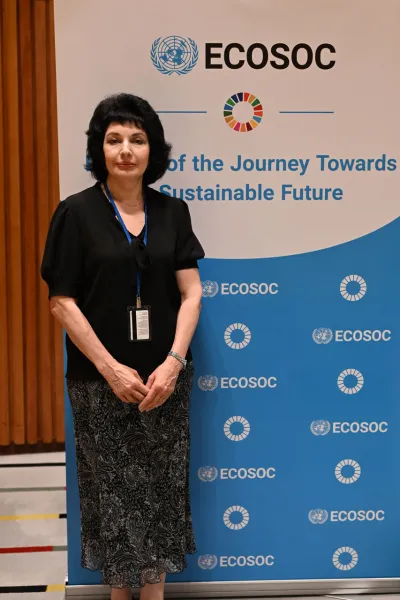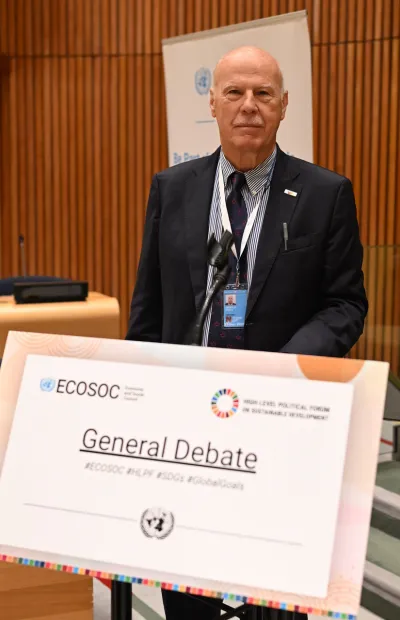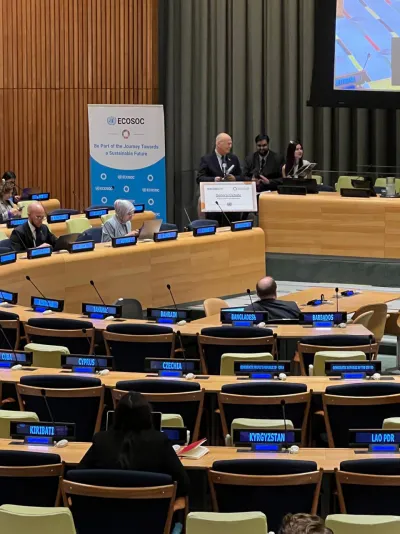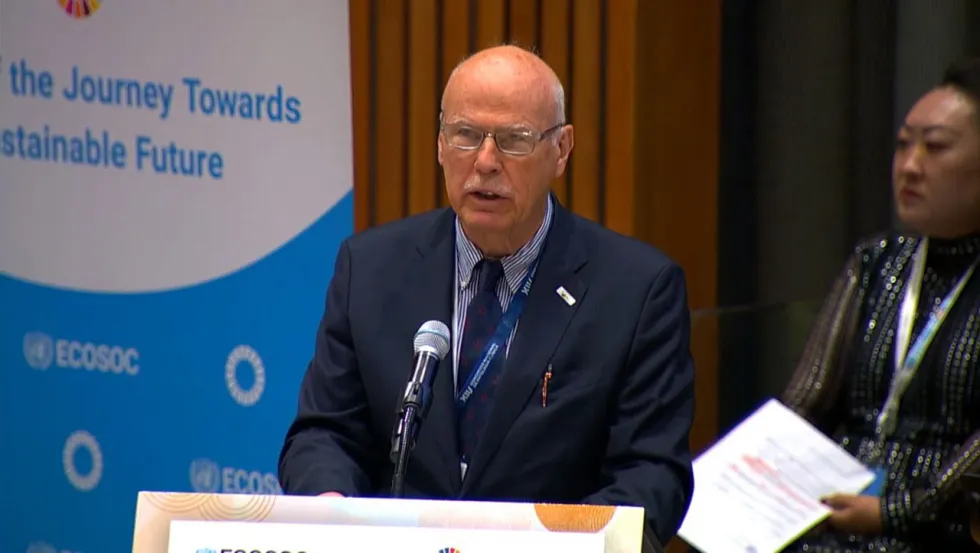
WFN President Prof. Dr Wolfgang Grisold was joined by Prof. Alla Guekht, co-chair of the WFN International Affairs and WHO Committee, at the 36th meeting of the High-Level Segment of the 2025 Economic and Social Council (ECOSOC) UN High-Level Political Forum on Sustainable Development (HLPF) on 24 July, 2025.
Held under the theme "Advancing sustainable, inclusive, science- and evidence-based solutions for the 2030 Agenda for Sustainable Development and its Sustainable Development Goals for leaving no one behind," this year's Forum called for intensified efforts to accelerate progress across all goals.
Prof. Grisold delivered an oral statement on “Advancing Brain Health and Neurology to Catalyze Progress of the 2030 Agenda for Sustainable Development,” highlighting the essential role of brain health in achieving the Sustainable Development Goals—especially SDG 3: Good Health and Well-Being. Prof. Grisold welcomed the growing global focus to non-communicable diseases (NCDs), including through the WHO Intersectoral Global Action Plan on Epilepsy and Other Neurological Disorders (IGAP), and called on Member States to include brain health and neurology as priority areas in national implementation plans.
Neurological disorders affect up to 40% of the global population and are a major cause of disability, with stroke alone ranking as the third leading cause of disability-adjusted life years (DALYs) worldwide. Conditions such as stroke, epilepsy, Alzheimer's disease, and Parkinson's disease make up a significant portion of the global NCD burden and often lead to additional health complications. As countries develop and expand national NCD strategies, WFN highlighted the opportunity to strengthen neurological services, promote prevention and early intervention, and improve outcomes for people living with neurological conditions through the effective implementation of national plans and roadmaps to reduce disease burden.
Prof. Dr Grisold also emphasized the connections between brain health and several other SDGs, including poverty (SDG 1), nutrition (SDG 2), education (SDG 4), gender equality (SDG 5), economic growth (SDG 8), reduced inequality (SDG 10), and climate action (SDG 13). WFN reiterated the ongoing need for investment in neuroscience research, capacity building, policy development, and intersectoral collaboration to advance brain health globally.
The Federation's participation in the HLPF also coincided with World Brain Day (22 July), which this year carried the theme "Brain Health for All Ages". The campaign raised global awareness of the importance of brain health, drawing attention to the need for increased investment in research, education, innovation, and workforce development.
By integrating brain health into broader development frameworks, countries can help deliver inclusive, sustainable, and evidence-based solutions—ensuring no one is left behind.
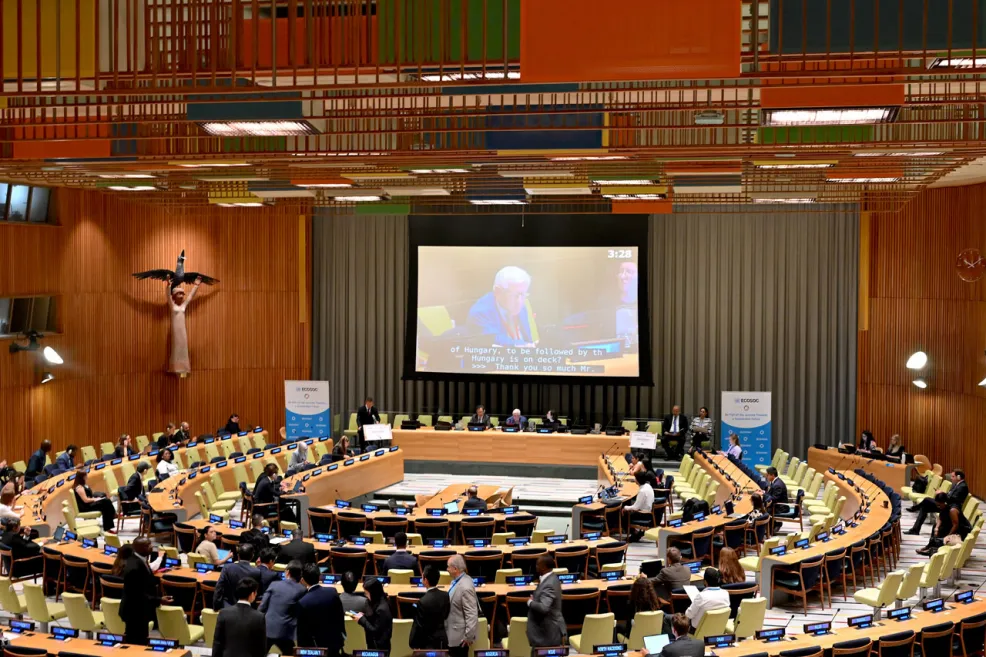
His Excellency Ambassador Bob Rae, President of the United Nations Economic and Social Council (ECOSOC) chairing the 36th UN HLPF ECOSOC meeting.
More information: https://ecosoc.un.org/en/events/2025/high-level-segment-ecosoc ⧉




